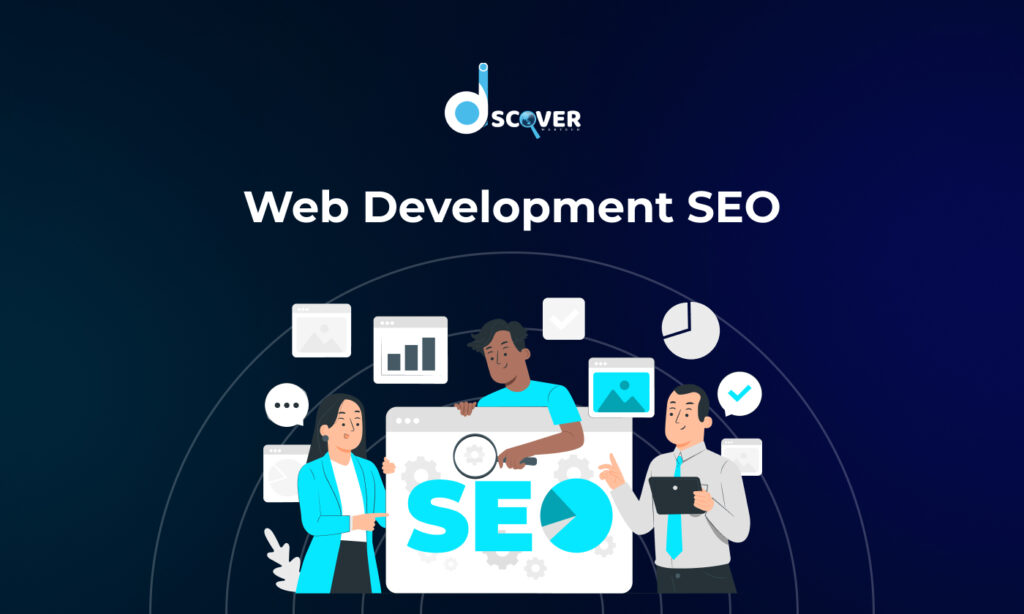
Speed is very important for SEO because it affects both user experience and search engine rankings. Fast websites keep users happy and lower bounce rates, which search engines look at when ranking sites. Slow websites can frustrate users and make them leave quickly, which can hurt your rankings. Using good practices in web development seo helps your website load quickly and efficiently, making it more visible on search engines. Focusing on speed improves user satisfaction and brings more organic traffic to your site.
Understanding Web Development SEO
Understanding web development SEO means knowing how building a website and optimizing it for search engines work together. Web development SEO includes using SEO practices while developing a website to make it user-friendly and search engine-friendly. This involves optimizing site structure, using clean code, and ensuring fast load times. The connection between web development and search engine optimization is important because a well-built site improves visibility, user experience, and search engine rankings.
What is Web Development SEO?
- Combines SEO practices with website development.
- Makes the site user-friendly and search engine-friendly.
The Connection:
- A well-built site improves visibility and user experience.
- Enhances search engine rankings.
Why Faster Load Times Matter
Faster load times are important because they improve user experience (UX) and help with SEO rankings. When websites load quickly, users are happier and more likely to stay, which lowers bounce rates. Core Web Vitals are metrics that Google uses to measure page performance, including load speed, interactivity, and visual stability. By focusing on these metrics, websites can rank higher in search results. Google has made page speed a key factor in its ranking algorithm, so optimizing load times is essential. Using best practices in web development seo helps ensure your site is fast, user-friendly, and ranks well on search engines.
Web Development Techniques for Faster Load Times
To make websites load faster, developers use several simple techniques. First, they optimize the code in HTML, CSS, and JavaScript by making the files smaller and cleaning up any unnecessary parts. They also use lazy loading for images and videos, which means these media files only load when they are needed, not all at once. Another method is using Content Delivery Networks (CDNs), which spread the content across multiple servers around the world so users can access the data from the closest server. Finally, they compress and optimize media files like images and videos to reduce their file sizes without losing quality, making the website load faster and providing a better user experience.
Techniques for Faster Load Times:
- Optimizing Code: Make HTML, CSS, and JavaScript files smaller and cleaner.
- Content Delivery Networks (CDNs): Spread content across multiple servers for quicker access.
- Compressing Media Files: Reduce file sizes of images and videos without losing quality.
Server and Hosting Optimization
Making your website load faster is important for a good user experience. First, pick a web host that offers fast performance and reliable uptime. This ensures your site runs smoothly. Next, enable GZIP compression to reduce the size of your website files, which helps them load quicker. Finally, reduce server response time by optimizing your server settings and using efficient code so your website responds quickly to user requests. Including these techniques as part of your web development seo efforts can greatly improve your site’s speed and user experience.
On-Page SEO Strategies for Speed and Rankings
Improving on-page SEO strategies for better speed and rankings involves a few key techniques. First, make your code smaller and reduce the number of server requests by minifying resources and cutting down on HTTP requests. Using browser caching effectively means storing frequently accessed files locally, so they load faster for returning visitors. Additionally, removing resources that block rendering ensures that important content shows up quickly without delays caused by scripts or stylesheets. These strategies help your site perform better and rank higher on search engines.
Effective On-Page SEO Strategies:
- Minify resources and reduce HTTP requests.
- Use browser caching effectively.
Enhancing Performance:
- Remove render-blocking resources.
- Optimize for quicker content display.
Mobile Optimization for Load Times and SEO
Making your website faster for mobile devices is really important for load times and SEO. First, make sure your web design is responsive so it works well on different screen sizes and devices. Using Accelerated Mobile Pages (AMP) helps create lightweight versions of web pages that load quickly on mobile. Regularly testing mobile load speeds helps find any problems that might slow down your site, allowing you to fix them promptly. Including these practices in your web development seo efforts ensures your site is fast, easy to use, and ranks well on search engines.
Testing and Monitoring Website Speed
Testing and keeping an eye on your website’s speed is very important for a good user experience. Tools like Google PageSpeed Insights and GTmetrix can help measure how fast your site loads and show where you can make improvements. It’s also important to track Core Web Vitals and other performance metrics to ensure your website meets standards. Regular performance audits are essential to find and fix issues before they affect users and search rankings.
Tools for Measuring Load Times:
- Google PageSpeed Insights and GTmetrix help identify and improve load times.
- Track Core Web Vitals and performance metrics.
Regular Performance Audits:
- Regularly check your website to find and fix problems.
- Ensure your website meets performance standards.
Advanced Tips to Enhance Web Development SEO
Making your website better for search engines involves some advanced strategies. First, using schema markup helps search engines understand your content and show rich results. Second, optimizing for local searches with fast-loading pages ensures your site performs well locally and offers a great user experience. Lastly, combining speed optimization with a good content strategy means you can keep load times fast while providing high-quality, relevant content that engages visitors and improves your search rankings. Using these techniques will boost your website’s visibility and performance.
Final Thoughts
To sum-up, mastering web development seo means using key tips like optimizing code, lazy loading, and making your site mobile-friendly. These steps help improve search engine rankings and user experience. Faster load times lead to better user engagement, lower bounce rates, and more conversions. Start by applying these strategies and regularly checking your site’s performance. Focusing on speed and quality will help your website achieve long-term success in search engine results.


